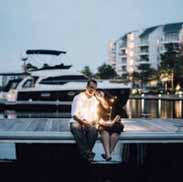World Geography Europe Vocab – Flashcards
Unlock all answers in this set
Unlock answersquestion
Fjords
answer
A long, narrow, deep inlet of the sea between steep slopes.
question
Upland
answer
A hill or very low mountain that may also contain mesas and high plateaus.
question
Meseta
answer
The central plateau of Spain.
question
Massif Central
answer
The uplands of France, which account for about one-sixth of French lands.
question
Peat
answer
Partially decayed plant matter found in bogs.
question
North Atlantic Drift
answer
A current of warm water from the Tropics.
question
Sirocco
answer
Hot, steady, south wind that blows from North Africa across the Mediterranean Sea into Southern Europe, mostly in Spring.
question
Mistral
answer
A cold, dry wind from the north.
question
Dike
answer
An earthen bank used to direct or prevent the passage of water.
question
Polder
answer
Land that is reclaimed from the sea or other body of water by diking and drainage.
question
Seaworks
answer
A structure used to control the sea's destructive impact on human life.
question
Terpen
answer
High earthen platforms used in seaworks.
question
Zuider Zee
answer
Former inlet of the North Sea in the Netherlands.
question
Ijsselmeer
answer
A freshwater lake separated from the North Sea by a dike and bordered by polders.
question
City-state
answer
An autonomous political unit made of of a city and its surrounding lands.
question
Crusades
answer
A series of wars launched by European Christians in 1096 to capture the Holy Land (Palestine) from Muslims.
question
Renaissance
answer
A time of renewed interest in learning and the arts that lasted from the 14th through 16th centuries; it began in the Italian city-states and spread north to all of Europe.
question
Aqueduct
answer
A structure that carries water over long distances.
question
Benelux
answer
The economic union of Belgium, the Netherlands, and Luxembourg.
question
Reformation
answer
A movement in Western Europe beginning in 1517, when many Christians broke away from the Catholic church and started Protestant churches; this led to mutual hostility and religious wars that tore apart Europe.
question
Nationalism
answer
The belief that people should be loyal to their nation, the people with whom they share land, culture, and history.
question
Feudalism
answer
A political system prevailing in Europe from about the 9th to about the 15th centuries in which a king allowed nobles the use of his land in exchange for their military service and their protection of the land.
question
Berlin Wall
answer
A wall erected by East Germany in 1961 to cut the capital of Berlin in two, and later dismantled in 1989.
question
Holocaust
answer
The Nazi program of mass murder of European Jews (and other groups) during World War II.
question
Parliament
answer
A representative lawmaking body whose member are elected or appointed and in which legislative and executive functions are combined in a legislature called a parliament.
question
Euro
answer
A common currency proposed by the European Union for it's member nations.
question
Nordic Countries
answer
Countries of Northern Europe, including Denmark, Finland, Iceland, Norway, and Sweden.
question
Cultural Crossroads
answer
A place where various cultures cross paths.
question
Balkanization
answer
The process of breaking up a region into small, mutually hostile units.
question
Satellite Nation
answer
A nation dominated by another country.
question
Folk art
answer
Handmade items, such as pottery, woodcarving, and traditional costumes, produced by rural people with traditional lifestyles, instead of by professional artists.
question
Anti-Semitism
answer
Discrimination against Jewish religion and people.
question
Ethnic Cleansing
answer
The policy of trying to eliminate an ethnic group.



